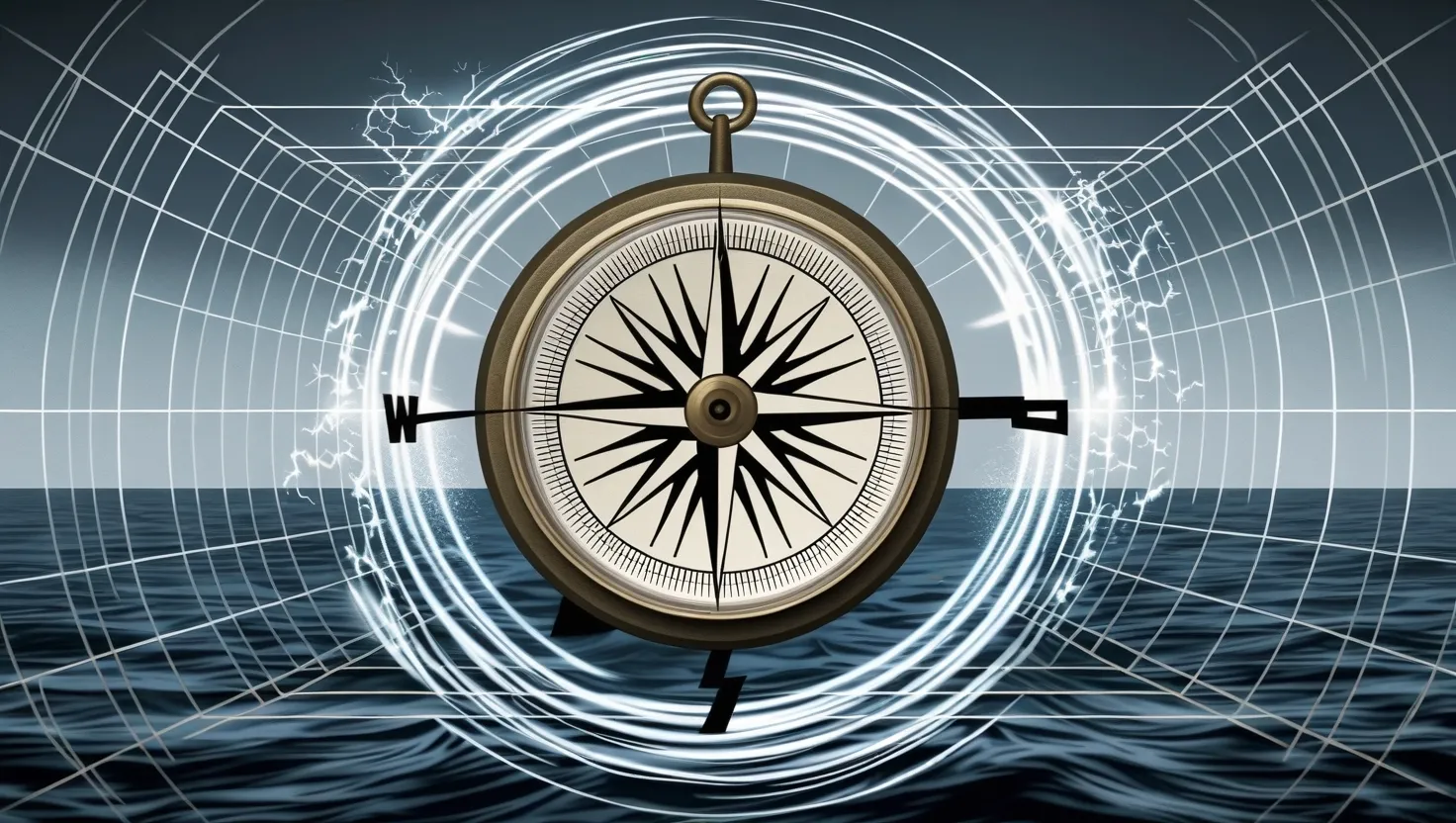Technology is at its best when it works silently, guiding us across land, sea, and sky without fuss. Yet, for as long as people have ventured into the patch of Atlantic known as the Bermuda Triangle, stories have rippled through aviation and maritime lore about instruments failing in ways that defy easy explanation. I prefer to look past the sensational headlines and focus on the chilling accounts of pilots and captains, whose electronic lifelines—compasses, radios, navigation systems—suddenly go haywire.
It’s not the vanishing ships or outlandish theories that draw me to this puzzle, but those moments when seasoned navigators find themselves cut off from the invisible web of information they rely on. What exactly causes the Bermuda Triangle’s technology to go silent—often in ordinary weather, far from storms or mechanical breakdowns?
Let me begin with Flight 19, a group of Navy bombers that flew into legend during a training mission from Florida in 1945. The flight’s leader, Charles Taylor, reported his compasses were malfunctioning and became confused about their position. Conversations between the pilots grew desperate as navigation aids refused to behave, radios sputtered with static, and the coastline stubbornly failed to appear. Eventually, all five planes vanished, with Taylor convinced he was being led astray by his own instruments. It’s worth asking: Was Taylor’s trust in his equipment misplaced, or was something truly interfering with their readings?
“Not everything that is faced can be changed, but nothing can be changed until it is faced.” — James Baldwin
Instrument failure in the Triangle is not an everyday event, but it’s common enough for voyageurs in the region to speak of it quietly, with a trace of nervousness. I’ve read stories from cargo ship crews whose electronic systems blink off for minutes, only to jolt back to life as if nothing happened. Commercial pilots have filed flight logs describing wild compass swings and radio channels that transform into a wall of static, even when meteorologists report clear skies below.
Why should guidance systems stop working only in this region, often with no warning and just as quickly return to normal? Some scientists suggest the answer lies in magnetic anomalies. The Earth isn’t a perfect magnet—its field is bumpy, with pockets of strange intensity. The Bermuda Triangle sits close to what’s called the agonic line, where compasses should point exactly to true north, confusing anyone used to the usual difference between magnetic north and true north. Maybe it’s the accidental crossing of this line that tips the instruments out of sync, especially older ones built before GPS rendered such quirks less dangerous.
“Physics is like sex: sure, it may give some practical results, but that’s not why we do it.” — Richard Feynman
Others have speculated about underwater methane explosions. Imagine a massive gas bubble thrusting out of the seabed: if it breaks the surface, it could theoretically foul a ship’s sensors, reduce the water’s density, and send a vessel downward in seconds. For aircraft, the eruption might cause engine stalls by altering air composition swiftly and violently—a rare event, but not impossible.
Let’s challenge the wisdom for a moment. If electronic blackouts were purely a matter of magnetic disturbance or gas eruptions, why doesn’t history record similar incidents in other parts of the world’s oceans? Are there other patches of the globe where compasses and radios go mad, or is the Triangle unique? Some suggest the difference may lie in the region’s busy traffic and tendency for records to be scrutinized and mythologized. It’s a fair question: how much does perception shape the pattern we see in these failures?
We shouldn’t ignore another stark possibility—the human factor. Pilots and captains, faced with trouble, can panic or make well-intended mistakes that reverberate through their decisions. The mind under stress sometimes distrusts its central navigation tools, especially when they clash with personal intuition or visual cues. Flight 19’s tragedy, for instance, stemmed partly from Taylor’s conviction that he was seeing the Florida Keys, not the Bahama Islands. His instruments didn’t fit his mental map, so he disregarded them and flew into disaster.
“Doubt is the key to knowledge.” — Persian Proverb
While old compasses and analog radios invite confusion, modern technology isn’t immune to the Triangle’s signature silence. Cargo ships report sudden losses of GPS signal or failures in automated navigation systems. Planes equipped with digital systems have logged transitory glitches, seemingly at random. Could these be due to the region’s weather, which can whip up storms with little warning? Or is there a more subtle interference with the electromagnetic environment, one that resists textbook explanations?
I have to admit, the most interesting angle for me is the temporary nature of these failures. Why do compasses spin wildly only to return to normal moments later? How do navigation systems lose their bearings, then recover as if a switch has been flipped back on? People love to speculate about strange energy fields, leaks from Earth’s magnetic heart, unrecognized atmospheric effects—even suggestions of technology designed to hush up the real reason.
Do you find yourself wondering if there’s a pattern hidden in these episodes? Could the timing of instrument failure align with solar flares, minor earthquakes, or even shifting oceanic currents? I’ve explored decades of reports, yet the absence of regularity remains—these events strike seemingly on a whim, leaving little evidence behind except rattled crews and sometimes chilling silence on the airwaves.
“Science is what you know. Philosophy is what you don’t know.” — Bertrand Russell
As someone fascinated by both technology and folklore, I often ask myself what it means for us when technology fails in a place reputed for mystery. The Triangle’s instrument glitches force us to re-examine our faith in gadgets that are supposed to keep us safe from human error. Do these stories teach us about the limits of reliability, or the importance of contingency plans and quick thinking?
Let’s return for a moment to the rescue planes sent after Flight 19. One vanished soon after takeoff, reportedly exploding midair and leaving only debris and an oil slick. Interestingly, none of the other planes and ships sent to search that night suffered similar mishaps. It suggests that failures, even in the Triangle, pick their victims inconsistently, raising more questions than answers.
Are we likely to find a single scientific cause, or are these incidents the result of layers—human factors, rare environmental triggers, and perhaps subtle local electromagnetic effects all combining unpredictably? The most recent studies lean towards a mix of navigation error and natural hazards, but plenty of seasoned mariners and pilots remain convinced there’s something peculiar afoot.
“Ships are the nearest things to dreams that hands have ever made.” — Robert N. Rose
I think the Bermuda Triangle stands as a fascinating puzzle inviting us to challenge what we know about the natural world and our own reliance on instruments. Imagine one day flying or sailing through a corridor where all your technology goes quiet. What would you trust—your instincts or the silent guidance of sensors and electronics? What training would keep you calm as the static grows louder, and the readouts begin to blink?
The Triangle’s greatest lesson may not be its failures, but its demand for humility before nature and technology. For every tale of misfiring compasses, there are catalogues of successful journeys that never make the headlines. Yet, the legacy of silence—those fleeting, bewildering instrument failures—remains a source of wonder for anyone who’s ever peered at a radio dial hoping for the friendly crackle of contact.
“Sometimes the questions are complicated and the answers are simple.” — Dr. Seuss
So next time you hear of a wild compass or dead headset in that notorious patch of ocean, resist the urge to chalk it up to legend. Consider instead the fragile trust we place in technology and the lessons that come from its unpredictable silence. The Bermuda Triangle’s true challenge is not just in surviving its blackouts, but in understanding the complex dance between nature, machines, and the people who depend on both.






